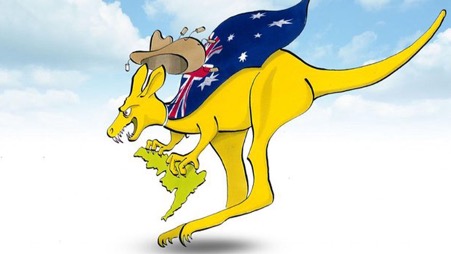
When privatised water utility Thames Water was publicly exposed for its dire record of negligence, letting Victorian-era pipes go to rack and ruin, failing to keep up with the resultant leaks and deliberately dumping raw sewage into the region’s waterways, the initial public reaction was to focus on individual examples of mismanagement, negligence, incompetence and greed – of which there were aplenty.
But scratch the surface and what has begun to emerge is the way that the company has been like a time bomb ticking away, dragging behind it a burden of unpayable loans inherited from the period when the company was owned by Australian investment bank Macquarie, from 2006 to 2017. It turns out that in the eleven years Macquarie had its fangs sunk into the water company, Thames Water’s debt load went up from £3.4bn to £10.8bn, saddling the company with a crippling debt legacy the full extent of which has become apparent in the present crisis. This, combined with the greed and mismanagement of Thames Water’s successive directors, amongst whom the same get rich quick mentality is rife, is what set the company on the road to ruin – and made some individuals very rich indeed, as is evidenced by the fact that between 2006 and 2017, total dividends paid out to investors came to no less than £2.7bn. And meanwhile the fish continued to choke on effluent and the pipes carried on leaking.
Macquarie has specialised in volatile markets, profiting mightily from other people’s chaos and misery. After the economic crisis in 2008 the bank bought up a load of junk debt, making a killing in the process. When in 1921 a particularly severe US winter created another profiteering business opportunity, Macquarie pounced. According to the Kansas attorney general, the bank bought gas at an inflated price with a view to influencing key pricing benchmarks – an allegation that still hangs over it. The winter period vamped up Macquarie’s profits by at least £140m. And the price-rises sparked by the onset of war in Ukraine have given the company’s earnings a further joyful boost.
Omkar Joshi from an Australian company, Opal Capital Management, told the Guardian, “They are not limited in what they do; they are always looking to capitalise on whatever opportunities present themselves. The main thing that really drives them is an entrepreneurial culture. They deploy capital to different opportunities and, in reality, many of them won’t work – but some of them will work really well” (Jonathan Barrett, ‘As Thames Water sinks, Macquarie Group continues its unstoppable rise’, The Guardian, 10 July 2023). Whether Macquarie’s spell at Thames Water “worked really well” or not rather depends on whether you apply human logic or capitalist logic. Maybe the rivers are full of turds and dead fish, but hey, the bank ran up a stupendous level of debt, rewarded directors and investors handsomely, then left Thames Water in the nick of time before the sewage hit the fan.
One might have thought that Thames Water, having had such recent experience of working with Macquarie, would be eager to sever all further connection with the bank. But this would be to ignore the incestuous lines of communication which link up all the players in the game. When the Thames Water crisis broke in June and the then CEO Sarah Bentley quit her job, who should be promoted as joint interim CEO to pick up the pieces but Cathryn Ross. Ross used to be the CEO at the ‘independent’ industry regulator Ofwat which had been tasked with going through the water company’s books, seemingly failing to note the monstrous accumulation of debt on which the company stood. Further, it turns out that since 2019 Ross has been a director of a company called National Gas Transmission. Oddly enough in 2022 that company was snaffled up by a consortium led by the ubiquitous Macquarie. Now it is reported that, for its latest CEO, Thames Water has been blessed with Sir Adrian Montague, who also happens to be the chair of Cadent, the biggest gas distribution network in Britain. And who owns Cadent? Who else but a consortium led by Macquarie. So the merry-go-round spins on, to the ground only by an ever accumulating mass of debt.
The lesson that needs to be learned is not that a more vigilant and less corrupt system of regulation would root out the bad apples. The apple comes from a tree which by now grows nothing but bad apples: capitalism. What needs to be learned is that the working class has it within its power to overthrow capitalism.
What stands exposed is the unsustainability for very much longer of a model of economic ‘growth’ which is built on the government printing of money, on the artificial inflation of share values and the kind of debt leveraging games for which the Macquarie brand of vulture capitalism is now under the spotlight. It cannot be sustained for ever, because one cannot hide for ever the crucial distinction between (a) actual surplus values generated within commodity production (i.e., the real economy) and (b) the self-identifying mockery of growth spun out of ever thinner air by the likes of Macquarie. Sooner or later the elastic will break, as reality reasserts itself. And therein lies the revolutionary opportunity for which workers need to be preparing.
Comments are closed, but trackbacks and pingbacks are open.